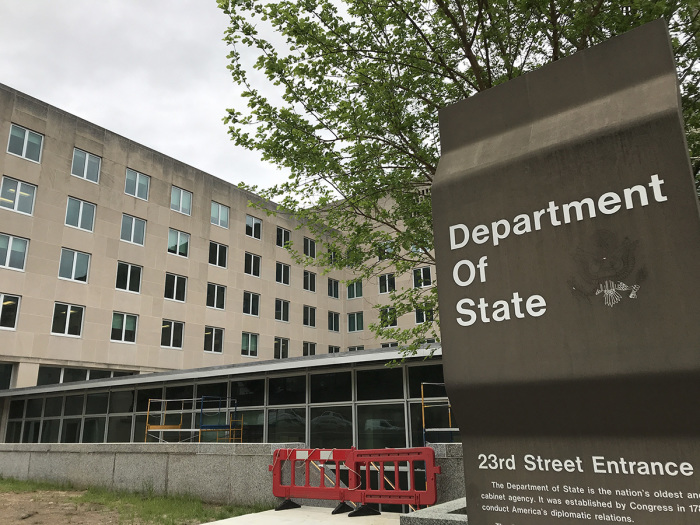
Applicants for student and exchange visitor visas must make their social media profiles public to allow for proper vetting, according to new guidelines announced by the U.S. State Department following multiple controversies surrounding the proposed deportations of foreign students accused of supporting Hamas and other terrorist organizations.
The U.S. State Department announced the new guidelines on Wednesday, emphasizing its commitment to upholding “the highest standards of national security and public safety” throughout its visa process.
“A U.S. visa is a privilege, not a right,” the department stated in a press release.
The department vowed to use all available information during the screening and vetting process to determine if applicants are eligible for admission into the country. The expanded guidelines are to help determine whether an applicant presents a potential risk to the country’s national security.
Under the new guidance, the department said the process will include a “comprehensive and thorough vetting” of all student and exchange visitor applicants in the F, M, and J nonimmigrant classifications. This includes vetting the applicants’ social media pages. All applicants for F, M, and J nonimmigrant visas must change the privacy settings on their social media profiles to public.
“Every visa adjudication is a national security decision,” the department explained.
“The United States must be vigilant during the visa issuance process to ensure that those applying for admission into the United States do not intend to harm Americans and our national interests, and that all applicants credibly establish their eligibility for the visa sought, including that they intend to engage in activities consistent with the terms for their admission,” the statement continued.
The State Department did not respond to The Christian Post’s request for further comment.
In May, U.S. Secretary of State Marco Rubio answered questions about the revocation of some student visas during his testimony at a Senate Foreign Relations Committee hearing. Rubio stressed that the department would continue revoking the visas of foreign students who block access to campus buildings and engage in acts of violence as a form of protest.
“A visa is not a right; it is a privilege,” Rubio declared.
“The bottom line is, if you’re coming here to stir up trouble on our campuses, we will deny you a visa. And if you have a visa, we will revoke it. And we’re going to do more; there are more coming,” the secretary of state added. “We’re going to continue to revoke the visas of people who are here as guests and are disrupting our higher education facilities.”
Rubio’s comments were in reference to a series of anti-Israel demonstrations held at various academic institutions throughout the country to protest Israel’s military actions in the Hamas-controlled Gaza Strip. Activists at several demonstrations set up encampments on campus and refused to leave. Some also blocked access to buildings and obstructed access to classes.
Jewish students at various institutions reported that they felt unsafe due to the antisemitic harassment they experienced from the anti-Israel activists. Last year at Columbia University, which became the site of a major anti-Israel encampment, activists took over Hamilton Hall, with video footage showing the protestors smashing windows and breaking into the building.
One of the anti-Israel activists who helped lead protests at Columbia University, a graduate named Mahmoud Khalil, received media attention after the Trump administration moved to revoke his green card. Khalil, a Syrian national, faced the possibility of deportation after he organized anti-Israel protests at Columbia.
As NBC News reported Wednesday, U.S. District Judge Michael Farbiarz has declined to release the anti-Israel activist from detention. Last month, the federal judge ruled that the Trump administration’s attempt to deport Khalil because he poses a threat to U.S. foreign policy seems “likely unconstitutionally vague.”
Khalil remains detained on separate charges related to the government’s allegation that he lied on his permanent residency application.
Samantha Kamman is a reporter for The Christian Post. She can be reached at: samantha.kamman@christianpost.com. Follow her on Twitter: @Samantha_Kamman

















